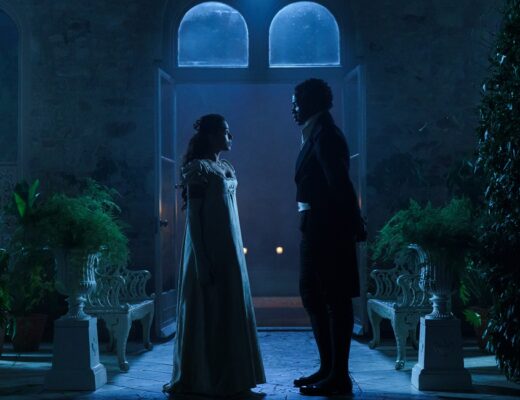Over the years the James Bond movies have fought to stay relevant in one way or another. Look at some of Roger Moore’s more amusingly ludicrous outings, a trip into vague blaxploitation territory in Live and Let Die, or reaching for some of that Star Wars glory with Moonraker. Or recall in Goldeneye M’s condemnation of newly-minted Bond Pierce Brosnan as “a sexist, misogynist dinosaur, a relic of the Cold War.” Each new iteration of the character promises to be more modern, more politically and socially correct, but while remaining the familiar superspy with his gadgets and girls and globetrotting adventures. The push-pull between the films’ progressive and conservative instincts has always been one of their finer pleasures.
But maybe there’s one context Bond isn’t ready for, and that’s the stultifying world of modern, gritty, mega-franchises, with their endless hurricanes of continuity and the need to shoehorn as much intellectual property into a film as it can possibly handle. Spectre, the 24th James Bond film, finally buckles under the weight of both a story seemingly engineered as a giant fan-service callback and the Daniel Craig-era’s insistence on providing backstory and psychological depth to a character never conceived (at least in the films) as a man but as an entity, an icon. An ostensible third act reveal is both silly and entirely pointless, lending an unnecessary and implausible personal connection between Bond and the series’ greatest nemesis for no other reason than unifying the Craig movies under one continuity. The entire picture is structured around the one aspect of James Bond about which absolutely nobody cares. Then there’s a half-hearted attempt to ascribe some political weight with what must be the 50th recent spy movie to invoke surveillance state paranoia and banal “Big Brother” references.
The whole exercise feels exhausted of fun and perfunctory.
Spectre twists itself in knots to make a basic story out of all this and ends up lurching from one nonsensical, expository speech to another, as if a mystery can be generated merely out of delaying the inevitable disclosure of a single piece of already-telegraphed information, that audiences will be satisfied by these info dumps simply because they each take place in a new gorgeous location. The film’s peppered with endless references to previous installments, recycling entire (much more famous) sequences, not because they’ve been modernized in some way but because you’re expected to notice that the new is like the old. The whole exercise feels exhausted of fun and perfunctory. Rather than exasperated by another attempt at freshness Spectre seems actively disdainful of its own formula.
And yet for the hardcore faithful, this film isn’t without some of the usual 007 pleasures. Craig remains a tough physical performer; his Bond, despite the overly miserable characterization, seems to genuinely enjoy violence when the producers allow him to inflict it. And though they’re spread too thin throughout the monumental edifice of Spectre’s 148-minute runtime, the classically composed action sequences of state-of-the-art technical craft that this series has always been a showcase for are amusing when they do come. Of these, the usual pre-credits adventure here is a particular standout, even though its greatest moment, a spectacular stunt with a corkscrewing MBB Bo 105 helicopter, is regrettably undone by some useless cutaways. In the old days, Bond had a fight or a car chase, the opening credits would roll, and then he would stroll into his boss’s office and get his next mission, some megalomaniac bent on world domination. The films were stylish adventure cartoons, pure escapism. Apparently that’s not enough anymore.








No Comments